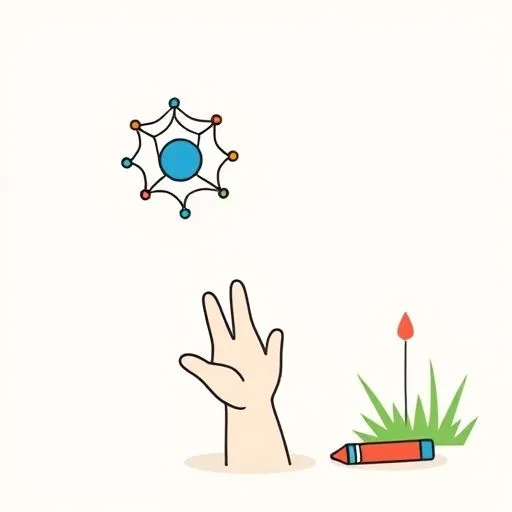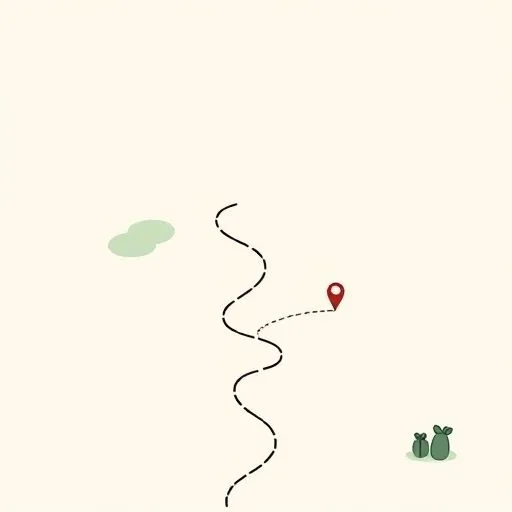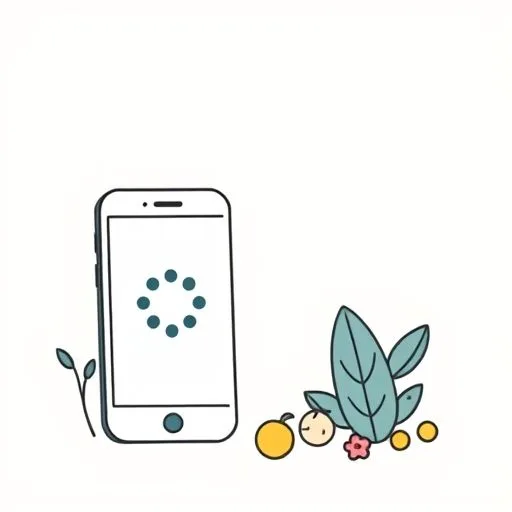
Finding the Human Connection When Tech Takes Over Parenting?
Ever feel like your parenting dashboard is running the show? That’s “workslop”—and I’ve got some wild stories to prove why unplugging is the real magic!
In that quiet moment before the morning rush, the house finally settles and I’m cradling a fresh cup of coffee. I often catch myself scrolling through parenting apps, hunting for the perfect activities or educational resources. It’s so tempting to let the tech tools do the heavy lifting, isn’t it? Lately, though, I’ve started asking myself—are we sliding into what I call “family workslop” without even noticing? You know what I mean? Last weekend, over toasted brioche slathered with kimchi scrambled eggs (my daughter’s new favorite mash-up!), we laughed about how our cultures mix—and how technology should blend in, not take over.

How Can Tech Help Yet Hinder Your Parenting Journey?
I remember when my daughter was at that age when every sentence begins with ‘why,’ and I found this amazing AI app that promised to answer all her questions. I thought I’d struck gold! No more scrambling for explanations about why the sky is blue or where rain comes from. But then something happened. The answers were technically correct, but they were missing… everything!
The wonder in my daughter’s eyes when we’d curl up with a library book to discover the science of clouds together – that’s something no algorithm can replicate!
Isn’t this just like those coworkers who hand over AI-generated presentations that look slick but are filled with hollow content? We’re seeing the same pattern in parenting – technology that promises solutions but delivers something less than what our children deserve. The magic isn’t in the perfect activity plan or the educational app; it’s in the shared discovery, the spontaneous questions that lead to deeper conversations, and the messy, beautiful process of learning together.

Does More Scheduled Family Time Equal Better Childhood?
I was chatting with another dad at the neighborhood park last week, and he mentioned how his family packs their weekends with back-to-back activities – all found through recommendation algorithms and parenting websites. ‘We’re giving our kids the best childhood possible,’ he said proudly. But could all this scheduled ‘excellence’ be creating another form of workslop?
Think about it: when every minute is planned, when every activity is optimized for maximum educational value, are we leaving room for the spontaneous discoveries that make childhood truly magical? Like the afternoon my daughter discovered a snail trail on the sidewalk and we spent an hour learning about these incredible creatures instead of rushing to our scheduled music class.
The real treasure isn’t in the quantity of experiences we provide; it’s in the depth of connection we build during those unscripted moments. That’s where the real growth happens – not in the perfectly curated Pinterest-worthy activity, but in the shared laughter over a failed baking experiment or the quiet conversations during a walk in the park.

How Can We Raise Kids to Thrive with AI?
Here’s something that really gets me excited! Our children are growing up in a world where AI in education is becoming more prevalent every day. That’s incredibly exciting! But how do we ensure these tools enhance rather than replace human creativity and critical thinking?
I’ve found that the key is treating AI like a helpful assistant rather than a replacement for our own engagement. When my daughter asks about dinosaurs, we might use an app to see what they looked like, but then we build our own models from clay or draw our own interpretations. The technology gives us information, but our imagination brings it to life!
This approach helps our kids develop what I call ‘AI literacy’ – understanding how these tools work while maintaining their own unique perspective and creative voice. They learn to use technology as a tool rather than letting technology use them. Isn’t that exactly what we want for our children in this rapidly changing world?

Can AI-Generated Plans Ever Match Human Intuition?
Planning family outings and activities with AI tools can feel like having a personal assistant helping you create the perfect experience. But here’s where I’ve learned to be mindful: the perfect itinerary isn’t always the perfect experience.
I remember planning a trip to a nearby nature reserve. The AI suggested the most efficient route, the best photo spots, and even the optimal snack timing. But when we arrived, we discovered a hidden path not in any guidebook – a discovery that became the highlight of our adventure! If we’d stuck rigidly to the AI-generated plan, we would have missed something truly special.
This is where the human element shines through. Technology can provide suggestions and information, but our intuition, our knowledge of our children’s interests, and our ability to be present in the moment create experiences that no algorithm could predict. Sometimes the best-laid plans need to be abandoned entirely – and that’s perfectly okay!

How Can Technology Actually Build Stronger Communities?
In our connected yet increasingly isolated world, there’s something powerful about genuine human connection. I’ve noticed how my daughter lights up when she recognizes a familiar face at the park or when she helps an elderly neighbor carry groceries.
This is where technology can actually help us build stronger communities, if we use it thoughtfully. We’ve used apps to find local family events, but the real magic happens when we put our phones away and engage with people face-to-face. Those spontaneous conversations with other parents at the playground, the shared stories at community gatherings – these are the connections that nurture not just our children but ourselves as well.
The research shows that 40% of employees are receiving workslop in their workplaces, and it’s creating real friction. I believe we can learn from this in our parenting approach. Let’s use technology to enhance our connections rather than replace them. Let’s create authentic experiences that build community, foster empathy, and teach our children the value of being present with others.
Family workslop happens not when we use technology, but when we let technology use us—replacing the messy, beautiful human connections that our children need most to thrive.
Our children deserve more than perfect algorithms and perfectly scheduled lives. They deserve our presence, our curiosity, and our willingness to learn alongside them. In this AI-saturated world, the most revolutionary thing we can do is to remain fully human in our parenting—finding that sweet spot where technology serves our families rather than defines them.
Source: Your coworkers are sick of your AI workslop, ZDNET, 2025/09/24
